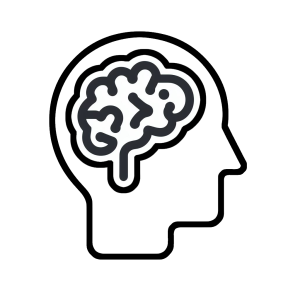Module 1: Professional Practice
 Module 1 Outcomes
Module 1 Outcomes
- MLO 1.1 Explain a teacher’s responsibility for providing equitable and inclusive environments for students with disabilities (CLO I, InTASC 9j, 9m, 9e)
- MLO 1.2: Determine ethical and legal principles applicable to scenarios where students are receiving or may need special education services. (CLO I, InTASC 9i, 9j, 9o)
- MLO 1.3: Evaluate personal skills, awareness, and professional development needs as related to the field of special education. (CLO I, InTASC 9e, 9m, 9n)
Learning and Unlearning
Few areas have experienced the explosive growth in new knowledge as have the phenomenal outcomes found in investigating brain development and learning how our brains work. Unique insights into how we learn and how we learn best have revolutionized the fields of teaching and learning and provided us with new opportunities to improve our teaching strategies to meet the learning potential of every student better.
New Research findings affirm that every person can learn, and every person learns differently. Whether a teacher candidate intends to specialize in the special education field or plans a professional career in E12 education in the United States, all teachers will interact with children with Special Education needs. Expected teaching skills include knowing how each person learns differently. However, classroom teachers may have only one Special Education-focused course in the entire Teacher Education program. Nevertheless, teachers must understand how to provide support and operate legally and ethically for students who receive special education services.
In this introduction, we will focus on teacher rights and duties from the perspective that teachers are educators of all students. Expectations transcend beyond formal teaching responsibilities into personal space and include multiple areas of professionalism, such as complying with Federal laws and mandates to guide practice, knowing the rules of ethics and mandatory reporting regulations, confidentiality requirements, political expectations, laws guiding Individual Education Programs, and many others.
An interesting concept noted in brain research is that learning is more straightforward than unlearning. Going through this course, watch for preconceived ideas that you might have that will take some hard work to be unlearned.
 Preparing to Learn
Preparing to Learn
The Backwards Brain Bicycle
- Explain how the age old saying of “it’s as easy as riding a bike” was debunked through the backwards bicycle.
- Search TikTok and find other tasks that seem easy but became more difficult or forgotten with a person’s age.
- Is a person ever too old to learn? If not, what are some things you need to take into account for their learning?
Describe the professional practices of special education teachers.
Knowledge. The teacher understands laws related to learners’ rights and teacher responsibilities (e.g., for educational equity, appropriate education for learners with disabilities, confidentiality, privacy, appropriate treatment of learners, reporting in situations related to possible child abuse).
Disposition. The teacher is committed to deepening understanding of his/her own frames of reference (e.g., culture, gender, language, abilities, ways of knowing), the potential biases in these frames, and their impact on expectations for and relationships with learners and their families.
Performance. The teacher reflects on his/her personal biases and accesses resources to deepen his/her own understanding of cultural, ethnic, gender, and learning differences to build stronger relationships and create more relevant learning experiences.
Knowledge. The teacher understands how personal identity, worldview, and prior experience affect perceptions and expectations, and recognizes how they may bias behaviors and interactions with others.
Disposition. The teacher understands the expectations of the profession including codes of ethics, professional standards of practice, and relevant law and policy.
Disposition. The teacher sees him/herself as a learner, continuously seeking opportunities to draw upon current education policy and research as sources of analysis and reflection to improve practice.

